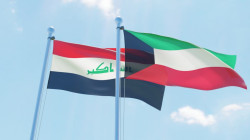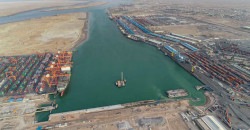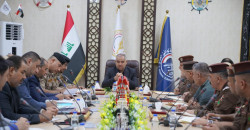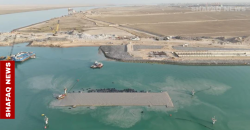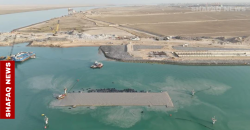Kuwait urges Iraq to address consequences of Federal Court ruling on "Khor Abdullah"
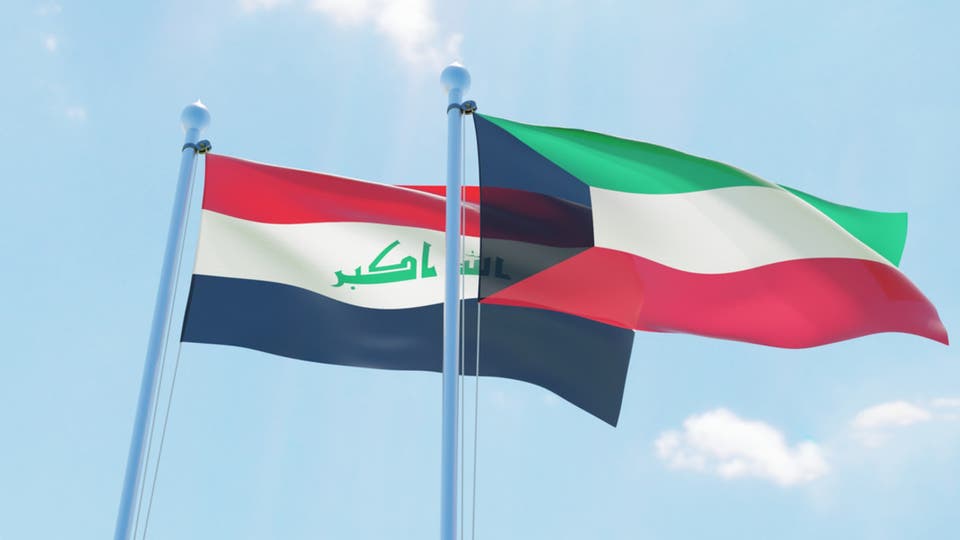
Shafaq News / Mishaal Al-Ahmad Al-Jaber Al-Sabah, representing the Amir of Kuwait, issued a call to Iraq on Friday, emphasizing the need for measures to address the consequences of the ruling by the Federal Supreme Court, which invalidated the agreement between the two countries regarding the regulation of maritime navigation in "Khor Abdullah."
He delivered this message during his speech at the first meeting of the leaders of the Gulf Cooperation Council (GCC) states and the leaders of the Asian League (ASEAN), which took place in the Saudi capital, Riyadh.
Al-Sabah stated, "Given Kuwait's commitment to good neighborliness, it emphasizes the urgency of the Iraqi government taking decisive and immediate steps to address the repercussions of the ruling concerning navigation in Khor Abdullah."
It is noteworthy that the Federal Supreme Court, the highest judicial authority in Iraq, ruled on the fourth of this month that the law confirming the maritime navigation agreement in Khor Abdullah with Kuwait is unconstitutional.
The Kuwaiti Ministry of Foreign Affairs had previously handed a protest memorandum to the Iraqi Ambassador in Kuwait concerning the Federal Court's ruling on the agreement regulating maritime navigation in Khor Abdullah.
The agreement on the regulation of maritime navigation in Khor Abdullah is a boundary agreement between Iraq and Kuwait. It was ratified in Baghdad on November 25, 2013, in implementation of United Nations Security Council Resolution 833, issued in 1993 following several resolutions after Iraq's invasion of Kuwait in 1990.
This agreement was aimed at demarcating the borders between the two countries and providing precise coordinates based on the agreement reached between the two nations after Kuwait's independence in 1961.
This agreement resulted in the division of Khor Abdullah between both nations, located at the northernmost point of the Arabian Gulf between the Iraqi Faw Peninsula and Kuwait's Bubiyan and Warbah islands.
It divided the maritime passage at the international boundary point between maritime boundary point 156 and maritime boundary point 157, extending south to point 162 and from there to the beginning of the entrance of the maritime passage at Khor Abdullah. Additionally, it led to the establishment of new ports.
This agreement generated significant controversy in Iraq. Some Iraqi politicians believed that the then-Iraqi Prime Minister Nouri al-Maliki and the Iraqi Parliament had relinquished a part of Khor Abdullah, which is the sole maritime passage leading to most of Iraq's ports. They argued that the division was done by classification, rather than along the deepest navigational channel.
On the other hand, another group defended the agreement, stating that it completed the border demarcation based on an international decision. It led to the actual establishment of Mubarak Al-Kabeer Port on the western shore of Khor Abdullah on Kuwait's Bubiyan Island. It was intended to connect via rail with Iraq in the future, becoming one of the largest ports in the Gulf in terms of capacity.
Notably, the Mubarak Al-Kabeer Port project itself has also generated controversy. This is due to the Kuwaiti government's choice of its location on the western shore of Khor Abdullah on Bubiyan Island, the maritime passage leading to Iraqi ports.
Iraq have called for moving this port to the southern shore of the island facing the Gulf to prevent any future congestion in this maritime passage after the completion of all four phases of the project.
The Kuwaiti government denied seizing any Iraqi territory through this agreement and emphasized its commitment to its maritime boundaries with Iraq.
